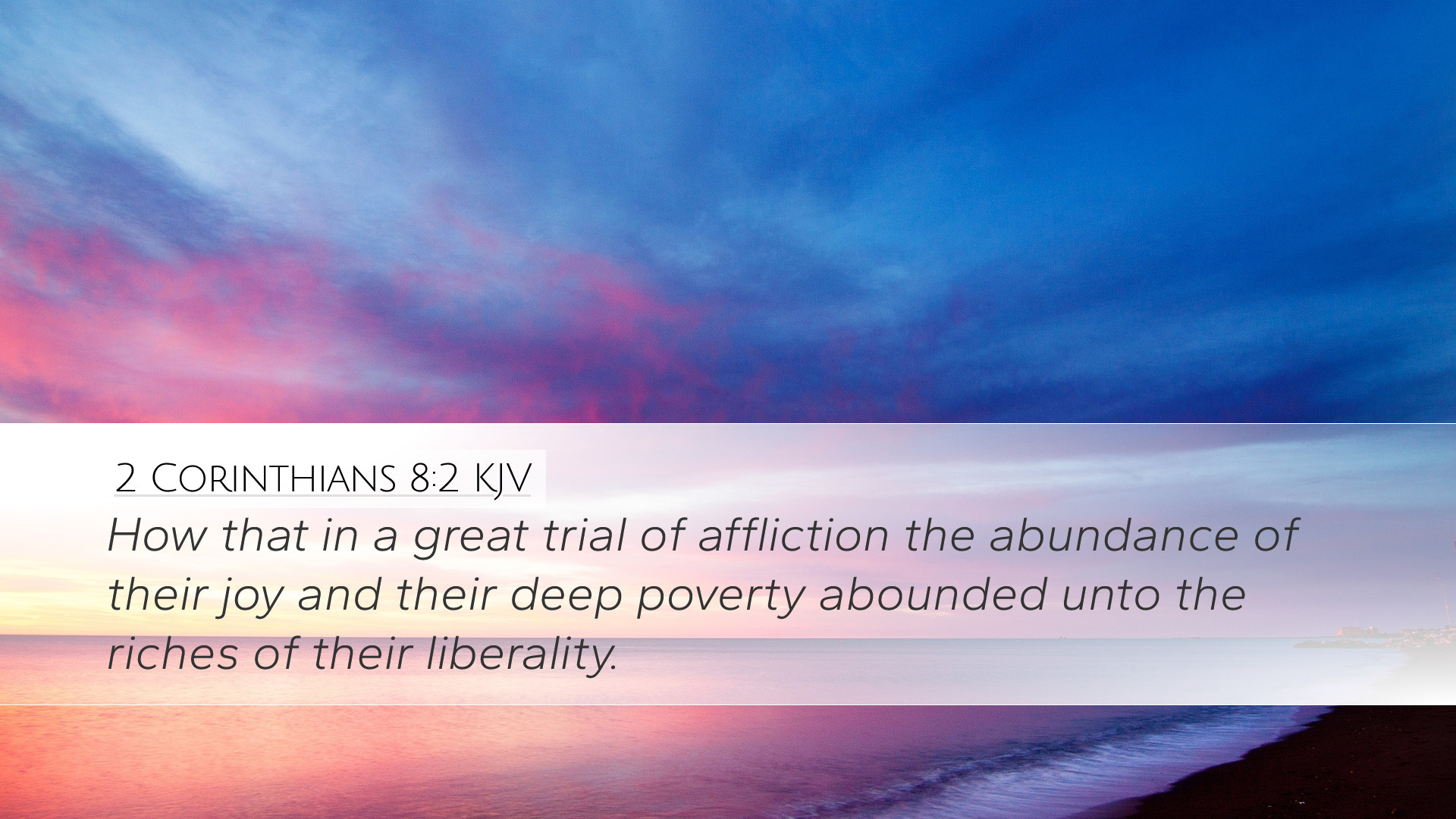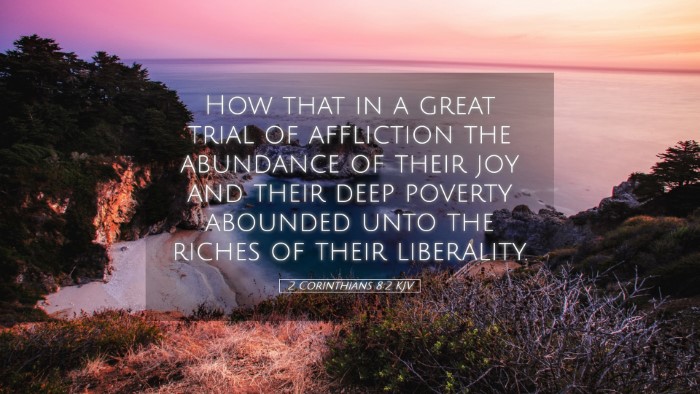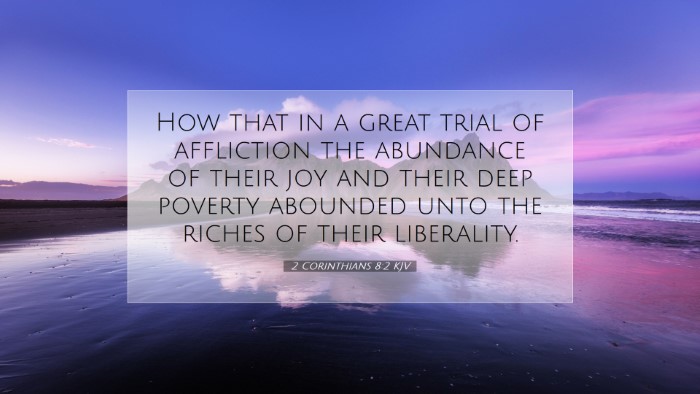Commentary on 2 Corinthians 8:2
Verse Context:
2 Corinthians 8:2 states, “That in a great trial of affliction the abundance of their joy and their deep poverty abounded unto the riches of their liberality.” This verse addresses the Macedonian believers who, despite their afflictions and poverty, exhibited extraordinary generosity.
Overview
This verse is critical in understanding Christian generosity and the relationship between suffering, joy, and giving. The commentaries of Matthew Henry, Albert Barnes, and Adam Clarke provide profound insights into the spiritual and practical implications of this scripture.
Matthew Henry's Insights
According to Matthew Henry, the Macedonian church is an exemplary model of Christian charity. He emphasizes that genuine liberality often springs from the depth of trial and hardship. Henry notes:
-
Joy in Affliction: He reflects on the paradox of their situation—how abundant joy can coexist with deep poverty. This joy is not superficial but stems from a deep-rooted faith in God’s provision.
-
True Generosity: Henry highlights that the richness of their liberality is not in the amount given but in the spirit of sacrificial giving despite their need. Their liberality is a response to God’s grace.
-
Implications for the Church: He applies this to the broader church context, urging believers today to give from the heart, regardless of their financial constraints, drawing from the grace they have received.
Albert Barnes' Commentary
Albert Barnes expands on the context of this verse, noting several dimensions:
-
Challenges of the Macedonians: Barnes discusses the “great trial of affliction” the Macedonians faced, indicating that financial struggles or persecution do not preclude the act of generous giving.
-
The Nature of Their Joy: He elaborates that their joy was a divine joy, rooted in their connection with Christ, which transcended their circumstances.
-
Richness of Giving: Barnes points out that their giving reflected a wealth of spirit rather than wealth of worldly resources. He urges Christians to examine their attitudes toward giving, suggesting that true wealth is measured by the willingness to sacrifice for others.
Adam Clarke's Analysis
Adam Clarke provides a detailed examination of the verse, reflecting on the nature of the Macedonian church:
-
Spirit of Generosity: Clarke emphasizes their readiness to give despite suffering, indicating that the love of Christ motivated them beyond their own needs.
-
Contrast of Poverty and Giving: He contrasts their deep poverty with their generous hearts, suggesting that true giving is measured by the proportion of the heart rather than wealth.
-
Call to Believers: Clarke calls upon modern believers to reflect on their giving practices and prioritize the spirit over the material. He argues for the need for an internal transformation that manifests externally in generous acts.
Theological Implications
The theological ramifications of 2 Corinthians 8:2 are profound:
-
Suffering and Joy: The coexistence of suffering and joy challenges common perceptions of happiness, showcasing that joy is rooted in faith rather than circumstances.
-
The Nature of Christian Generosity: This verse redefines generosity—it's not about the sum but the sacrificial spirit. It reminds the church that true giving is akin to grace.
-
Community and Mutual Support: It establishes a paradigm for Christian community—the obligation to support one another, even when facing personal trials.
Application for Today
The application of 2 Corinthians 8:2 extends to several areas:
-
Pastoral Ministry: Pastors are encouraged to model sacrificial giving and not just financial contributions, demonstrating the joy of giving within their congregations.
-
Personal Reflection: Individuals are called to assess their own giving—not just financially but in service, time, and resources—reflecting the Macedonian spirit of generosity.
-
Church Programs: James encourages church programs that promote giving and sharing, echoing the Macedonian practice. This can involve assistance programs for those in need or community outreach efforts.
Conclusion
2 Corinthians 8:2 serves as a powerful reminder of the connection between hardship and abundance in the Christian faith. The insights from Matthew Henry, Albert Barnes, and Adam Clarke reaffirm that true generosity springs from an understanding of grace, joy, and the willingness to share with others, transcending mere material considerations.


